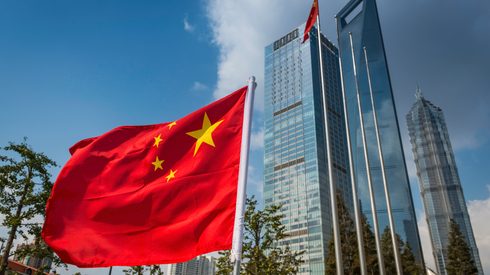Following the US imposition of 25% tariff on aluminium from Canada an additional 50,000 tonnes of primary light metal is expected to be diverted to Europe, starting from the end of April and into June, sources told Fastmarkets.
Sources said that about 15,000-18,000 tonnes of aluminium will be shipped from Canada to Europe at the end of April. Some of that heading to Trieste, Italy’s only port in the eastern Adriatic; with additional 5,000-10,000 tonnes of aluminium ingots from Aluminerie Alouette diverted to Europe — some of which will also head to the Mediterranean region.
But most of the estimated 50,000 tonnes of aluminium is expected to arrive in Rotterdam, Fastmarkets understands.
To put these volumes into context, according to Fastmarkets researchers, total EU import volumes of unalloyed and unwrought aluminium, including P1020A ingots, from Canada amounted to around 95,000 tonnes in 2024, with 65,000 tonnes of the total arriving in Rotterdam between February and April last year.
Italy imported a total of around 30,000 tonnes of unalloyed and unwrought aluminium from Canada in 2024.
Sources said the additional 50,000 tonnes of Canadian aluminium heading to Europe was significant because it “will continue to put pressure on the P1020 duty-paid premium” as happened just after US president Donald Trump signed his executive order imposing 25% tariffs on almost all imports from Canada on February 1.
Fastmarkets aluminium price assessments
Fastmarkets’ twice-weekly assessment for aluminium P1020A premium, in-whs dp Rotterdam, was at $180-215 per tonne on April 17, down from $320-365 per tonne on February 4 – the pricing session after the US impostiion of tariffs on Canada.
Thanks to a free-trade agreement between Canada and the EU, Canadian exporters enjoy duty free status on their aluminium, thereby improving the profit margins of the importers.
But other sources said the additional 50,000 tonnes was “not going to flood the Rotterdam market as some fear” because the import volumes from Canada are “only a bit more than the usual flow.”
Market participants have been expecting the Canadian aluminium since Trump’s tariffs made it not “economically viable” to send from Canada to the US.
However, if Canada – the biggest exporter of aluminium to the US – continues to send aluminium to Europe after June, the big question then will relate to the impact on Rotterdam duty-paid premiums.
LME aluminium price decline
The London Metal Exchange aluminium price has declined by about $300 per tonne over the past month, with some participants noting that “the US allocation from Canada is benefitting by roughly $75 per tonne.”
The LME three-month aluminium price was $2,365.50 per tonne at the 5pm BST close on Thursday April 17, down from a 5pm closing range of $2,681-2,703 per tonne – a range that has been in place since March 10.
With Canadian supplies heading elsewhere, the US Midwest P1020 premium has also moved up over the past week.
Fastmarkets’ daily assessment for aluminium P1020A premium, ddp Midwest US, was at 42-45 cents per lb on April 17, up from 40.50-42.00 cents per lb on April 11.
“If the [P1020] Midwest premium moves up by another 3-4 cents per lb, then the US would start to look [like a good enough level for Canadians to send materials to the US [again],” a European consumer said.
Meanwhile, Italian P1020A premiums were pulled down by the decline in the Rotterdam premiums – although the Italian market is experiencing a shortage of P1020 duty-paid materials, several sources told Fastmarkets.
“I think it’ll be good for the Italian market that some of the units are coming from Canada,” a European trader said.
“Duty-paid materials mainly come from Mozal Aluminium in Mozambique, but I think there are some production issues there now,” the trader added.
Fastmarkets’ weekly assessment for aluminium P1020A premium, fca dp Italy, was at $220-260 per tonne on April 15, down from $370-390 per tonne on February 4.
Fastmarkets provides you with actionable insights. Use our market intelligence on tariff updates to make smarter decisions in the global metals market. Visit our dedicated tariffs content hub today.






